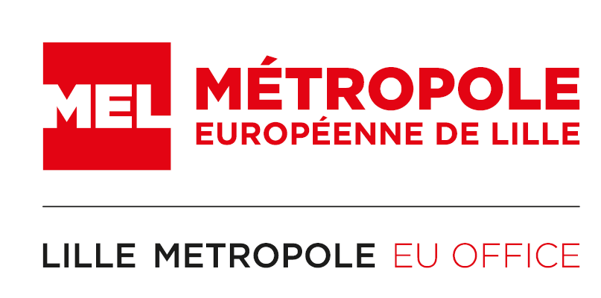
Circular Construction and Renovation (2nd Workshop of the NEB Seminar)
The construction sector is at the heart of the strategies and legislation that aim to the implement the European Green Deal.
While the construction phase is responsible for almost 60 % of the carbon footprint of a new building (and its using 40 %), the rehabilitation/renovation of existing buildings, rather than reconstruction, is a major challenge to limit emissions. Thus, with the introduction of bio-based and/or overcycled materials, the “circular” renovation allows a sustainable, affordable and qualitative transformation of the built environment, both in the investment phase and in the exploitation. The renovated homes will achieve energy performance almost as high as new constructions, while significantly reducing the use of new resources and energy to renovate them. Overall, renovation has a positive economic impact for both building occupants by reducing household energy poverty, and for building owners by increasing their value and reducing vacancy periods.
On the other hand, reasoned renovations, rather than systematic demolition/reconstruction of tertiary or residential buildings, sometimes keep on-site employees or residents, often very attached to their place of work or living. Regarding housing, it can avoid expelling residents, rehousing them in other neighbourhoods or temporary uncomfortable solutions.
Circular renovation also generates green, perennial and non-outsourceable jobs. It also is an isignificant way to update the jobs of the future and represents an opportunity of social inclusion for people away from employment, around the activities of deconstruction, sorting and processing of second-work materials that have become attractive.
Finally, circular renovation and reconstruction brings well-being and quality of life to the inhabitants/employees of renovated buildings including bio-based materials, re-use and overcycling, renewable and healthier.
Relations with the objectives of the NEB and prospects for cooperation and funding
The NEB is at the heart of the city’s circular renovation and construction movement that currently takes place in cities. It matches with each of the areas of transformation supported by the NEB :
- Reconnecting with nature: the circular renovation incorporates bio-based materials and promotes the healthy natural metabolism on which it is inspired.
- Regaining a sense of belonging: circular renovation helps to keep the inhabitants in their building, housing and neighbourhood.
- Prioritising the places and people who need it the most : renovation and circular conversion helps to fight energy poverty and promotes social diversity in neighborhoods ;
- Adopting a long-term reflection on the life cycle in the industrial ecosystem and devote new lands to this transition enabling the economy of scale: circularity is the key in fighting against an unsustainable use of resources and waste generation.
EU policies and programs will gradually support the objectives of the New European Bauhaus and will offer opportunities for experimentation, labellisation and co-financing, in particular with calling for proposals dedicated to the NEB or incorporating a NEB dimension :
- Transformation of places on the ground
- NEB Demonstrators: Call Horizon Europe (finalised), then European Urban Initiative (3 rd trimester 2022),
- Call HE (April 2022): The new European Bauhaus — shaping a greener and fairer way of life in creative and inclusive societies through architecture, design and the arts
- Call HE (February 2022): integrated solutions for circularity in buildings and the construction sector
- Call HE (Sept 2022 —Jan 2023) Sustainable and resource-efficient solutions for an open, accessible, inclusive, resilient and low-emission cultural heritage: prevention, piloting, management, maintenance and renovation.
- ...
- Transformation of the enabling environment for innovation Calls: COSME, Life, Horizon Europe, Erasmus +
- Diffusion of new meanings Erasmus+,
Objectives and questions for workshops
The aim of the workshops is to identify problems, or even solutions to work together between European cities and regions and their local operators, in order to build tomorrow projects contributing to the NEB dynamics and to be able to gather EU funding by responding together to future calls for projects.
Examples of questions at the workshop:
- How to prioritise renovation and circular reasoned transformation of buildings rather than systematic demolition. How to rebuild the city on the city by involving the inhabitants/users?
- How can we create an economic value chain involving craftsmen, circular economy actors, suppliers of local materials (bio-based or overcycled), the social economy, citizens,... able to keep up with a sustained pace of large-scale renovation, relying on the “nature based solutions” and the spaces needed for its new local industries and the storage of materials to be upgraded locally?
- How can we encourage the establishment of places dedicated to the circular economy of the built environment, which require space to sort, process, store and return in the circuit materials and other equipment of 2nd deconstruction?
- How to include people furthest away from employment and to upgrade today’s jobs in the circular renovation dynamics?
- How to infuse new dynamics, diversity of functions and new ways of living together in neighbourhoods through the renovation of the built heritage and public spaces (e.g. through participatory projects, social innovation, conversion including local production and distribution, housing, leisure, culture and inclusion, ...)?

